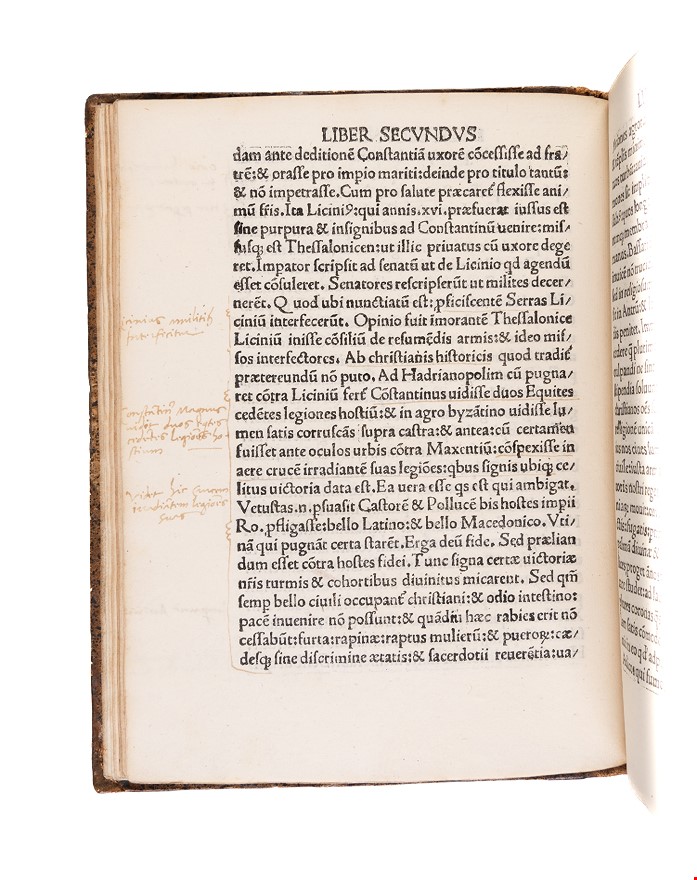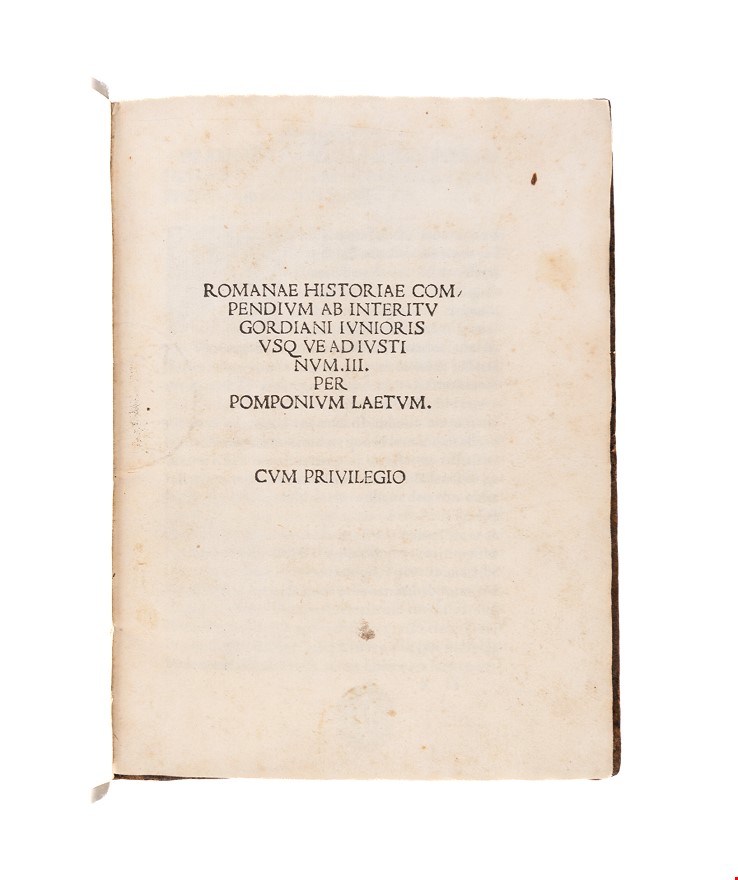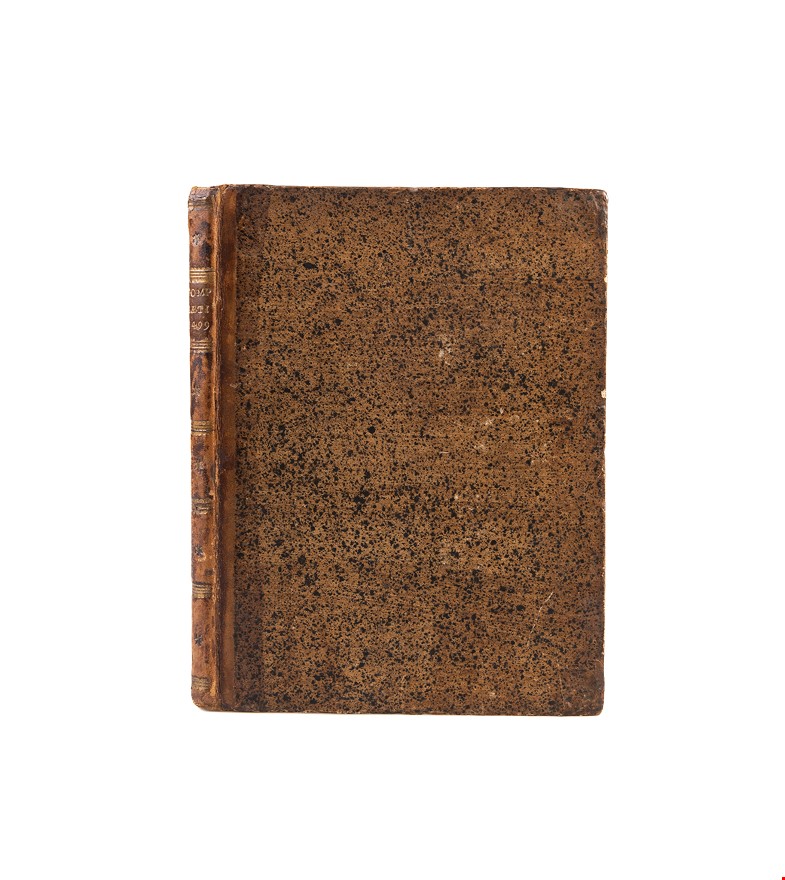Romanae Historiae compendium an interitu Gordani iunioris usque ad Iustinum III. Venice, Bernardinus Venetus de Vitalibus, 23 Apr.
LAETUS Pomponius (1499)
£2750.00
Please contact us in advance if you would like to view this book at our Curzon Street shop.
POSTHUMOUS FIRST EDITION
With three ornamental woodcut initials.
4to. (204 x 147mm.). 28 leaves. 28 lines and head-line, roman letter. Late 18th century calf-backed boards (spine a little worn).
First edition of this history, one of several such treatises by the notable humanist Pomponio Leto (1428-1498) who was a pupil of Lorenzo Valla and became an extreme devotee of Roman antiquities.
This edition was published posthumously; it begins with a preface by Francesco Borgia and it concludes with a life of Leto by Marc'antonio Sabellico, in which the publisher of the volume is named as Democritus of Terracina: " . . . librum archetypum cum Pomponii chirographi ea conditione librariis obtuli: quod ut commodius fieret totum negotium detuli Democrati Terracensi". Sabellicus had previously published a dedicatory letter to Democritus in his Enneades, printed in the previous year by the same printer. The elegant white-vine woodcut initials in this work were first used in the Enneades and were considered by Essling to be perhaps the most beautiful printed in Venice. Preceding the colophon are four lines of verse by Palladio Serrano whose poetry was printed by Vitalibus in the previous year.Leto was a notable humanist who gathered around him at Rome an Academy of pupils and fellow humanists, propagating an exaggerated devotion for Roman literature, pagan ceremonies, even early Roman methods of agriculture; it was temporarily suppressed by Pope Paul in 1468 because of suspicions of irreligion and republicanism, and Leto fled, but was imprisoned on in his return, but released after condemnation for pederasty and paganism.
Provenance. Some marginal annotations in a near-contemporary hand. White-on-blank stamp at foot of f. a2, "BC", probably that of the "Bibliotheca Corsiniana", i.e. the 18th-century library of the Corsini family, founded by Cardinal Neri Corsini (nephew of Pope Clement XII), which in 1883 was given to the nation, as the now Biblioteca Corsiniana, Rome, a very rich incunable collection with many exceptional rarities. Other examples, such as the present one, did leave the collection and are found at Harvard, Bodleian, and in the 1974 Chatsworth sale. 18th century armorial engraved arms of the Inglis family of Scotland.
ISTC il00024000. HC 9830* BMC V, 549. IGI 7987. Goff L24.
Stock Code: 45407






